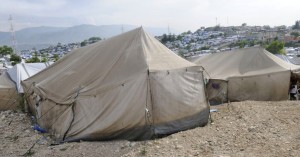
The Refugee Crisis Is Still Affecting So Many…Have We Turned a Blind Eye?
Over the past four years, a civil war has raged in Syria. The death counts have been mounting and 11 million civilians have been displaced—4 million of whom have left their home country altogether. Most of the Syrian refugees have sought shelter in neighboring Middle Eastern countries like Turkey, Jordan, and Lebanon. However, a new trend has spiked: more and more of the refugees are streaming into European countries like Greece. There are several reasons why this is the case, but the two biggies are a lack of resources and a lack of hope.
Lack of resources
As more and more refugees seek asylum in neighboring countries, more money is needed to provide them with food, shelter, education, and health care. Funding has been severely lacking, however. Last December, the UN requested $8.4 billion—the largest sum of money they’ve ever asked for at one time for one issue. The world didn’t even give them half of the $6.5 billion they’d requested previously. Funding has been sliced as a result, to the detriment of the Syrian refugees. On top of that, the refugees in several host countries are not legally permitted to work. According to Newsweek, some who run out of savings are forced to take measures such as giving their daughters away as child brides.
In addition to that, space is lacking; the Middle Eastern countries that have accepted most of the refugees are beginning to burst at the seams. These countries were not exactly well-off to begin with, either, so tensions are mounting. Some of the refugees are escaping to Europe for this reason, fearing that their host country’s tolerance toward their presence will soon run dry.
Not all refugees are living in camps set up by the UN, but there is a terrible degree of overcrowding there. That, on top of the poverty that many face, drives them to seek shelter elsewhere.
Lack of hope
The war in Syria has lasted four years, and countless people have died—both civilians and soldiers–and it shows no signs of coming to an end anytime soon. Many of the refugees have come to realize that. So they look around at the squalor surrounding them and decide their places of refuge won’t work in the long run. Hoping to reestablish their lives, they escape to Europe.
What’s the problem with moving to Europe?
The journey to Europe is treacherous in more ways than one. The physical journey in and of itself is risky. They often must rely on smugglers who pay little heed to their clients’ safety. Also, when it comes to crossing oceans and seas, refugees often must cross in vessels that are not seaworthy. Accidents and mishaps are all too common, and European countries have worsened the situation by chopping the funding of a search and rescue program (fearing that it would encourage people to continue streaming in). As a result, about 2500 people died from the journey just this past summer.
Related to that is Europe’s attitude toward allowing refugees in. Most countries, except Germany, are reluctant and resistant, going so far as intentionally keeping them out. In Hungary, for example, refugees caught sneaking over the border are shipped to so-called “camps.”
What can we do?
The refugees and the countries that host them desperately need monetary support. With the help of donations from other nations, they can offer better—and more—provisions to more people.
The United States of America is one of the most powerful countries in the world, so it is our civil duty to take part in assisting these people. By speaking up and speaking out, you will tell Congress to remember and help those who can’t help themselves.

